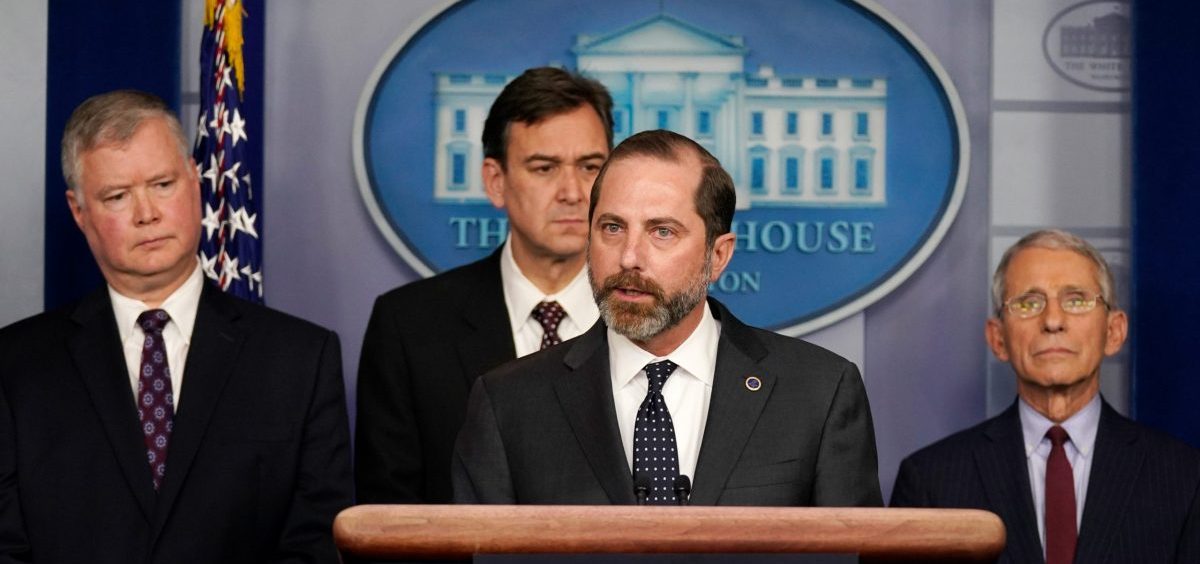News

Trump Declares Coronavirus A Public Health Emergency And Restricts Travel From China
By: Allison Aubrey | NPR
Posted on:
The Trump administration announced Friday that coronavirus has been declared a public health emergency in the U.S.
“Today President Trump took decisive action to minimize the risk of novel coronavirus in the United States,” said Health and Human Services secretary Alex Azar at the White House today.
The risk of contracting the coronavirus is the U.S. is low — something that federal health administration officials emphasized repeatedly during a White House meeting. “We want to keep it that way,” Azar said.
The declaration of a public health emergency — which will become effective Sunday February 2, at 5 p.m. ET — allows the government to take temporary measures to contain the spread of the virus, which so far has been confirmed is six people in the U.S.
The action means that U.S. citizens who have been in Hubei province China in the past 14 days will be subject to 14 days of mandatory quarantine if they travel back to the United States.
In addition, the U.S. is temporarily suspending entry of travelers who are not U.S. citizens who pose a risk of transmitting virus. “Foreign nationals other than immediate family of U.S. citizens and permanent residents who have travelled in China in last 14 days will be denied entry into United States,” Azar said.
U.S. citizens who have been in other areas of mainland China in the past 14 days will be subject to screening at the airport of entry and heightened monitoring for 14 days.
Federal health officials justified the move, pointing to the fast global spread of the virus. The announcement comes on the heels of the World Health Organization declaration of a global health emergency Thursday.
Federal officials explained the reason for the intense focus on this outbreak, which so far has not led to any deaths in the U.S.
“I often get asked [about the] influenza outbreak,” which has led to at least 8,000 death in the U.S. this season, says Anthony Fauci,, director of the National Institute of Allergy and Infectious Diseases, part of the NIH. “People want to know why we’re paying so much attention to the novel coronavirus.”
He said, in contrast to the seasonal flu toll, which is predictable, “there are a lot of unknowns [with the coronavirus].” And, he points to a number of concerns. “The number of cases has steeply inclined each and every day,” Fauci said. In addition, at the beginning of the outbreak it wasn’t clear if an infected person without symptoms could transmit the virus to another person.
“Now we know for sure that there are,” asymptomatic infections, Fauci said.
9(MDI4ODU1ODA1MDE0ODA3MTMyMDY2MTJiNQ000))

